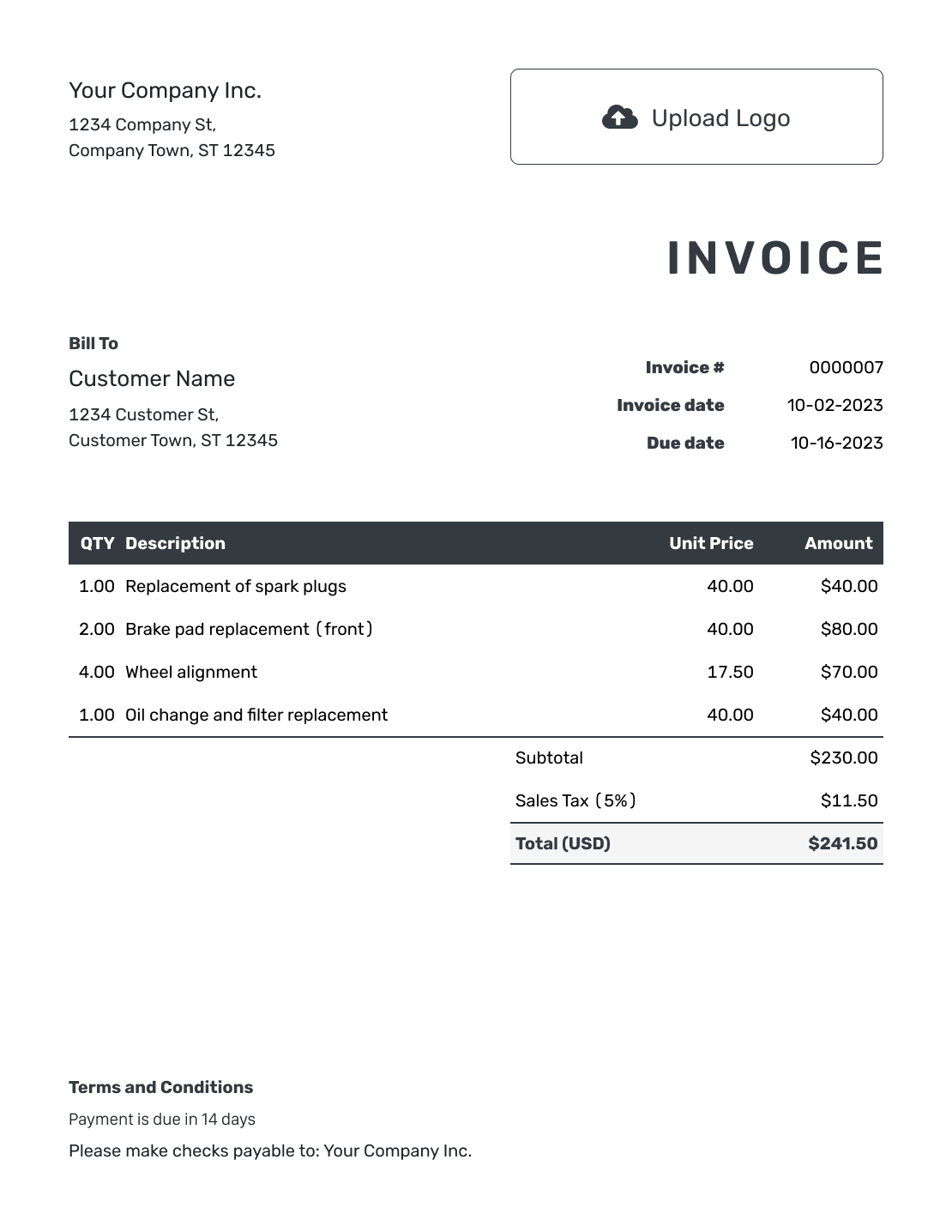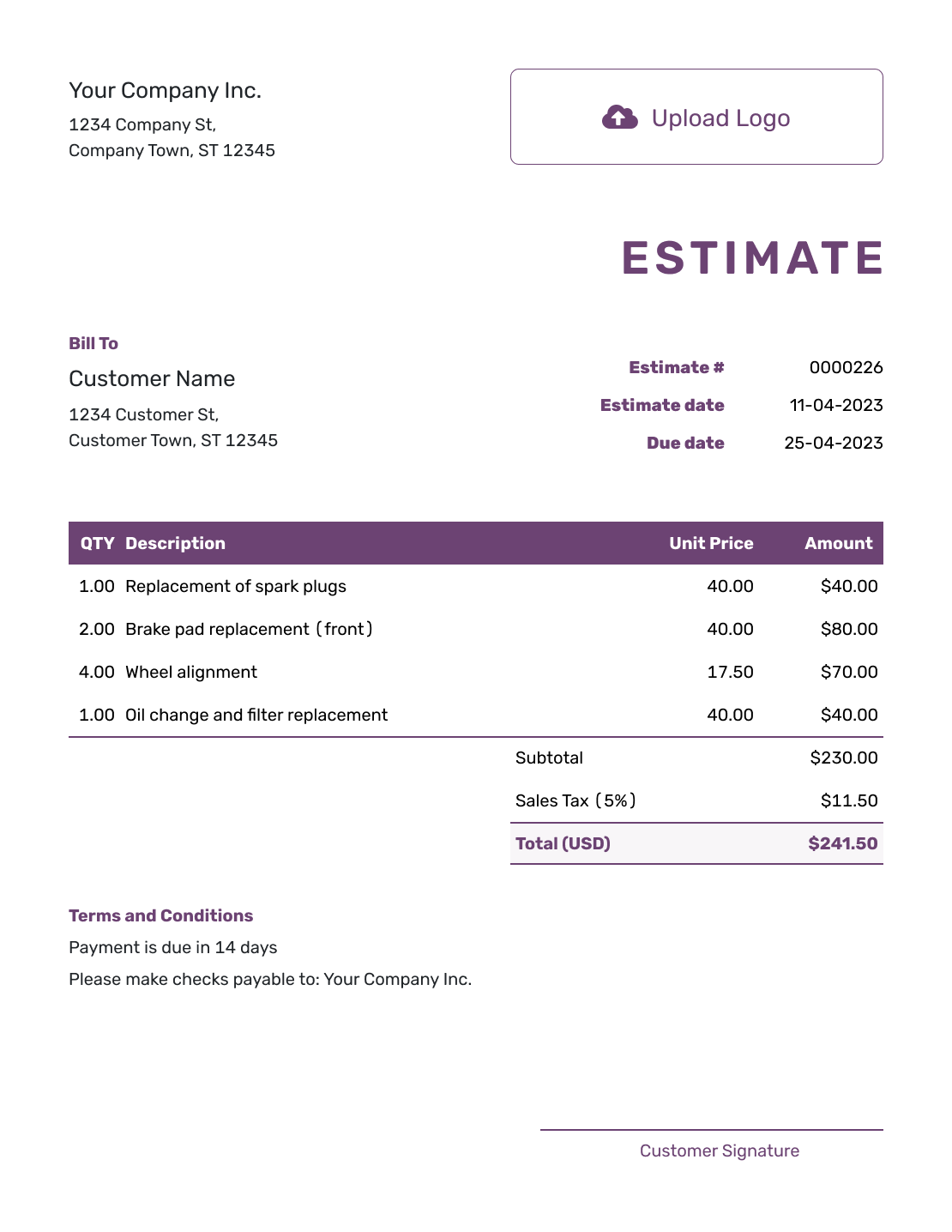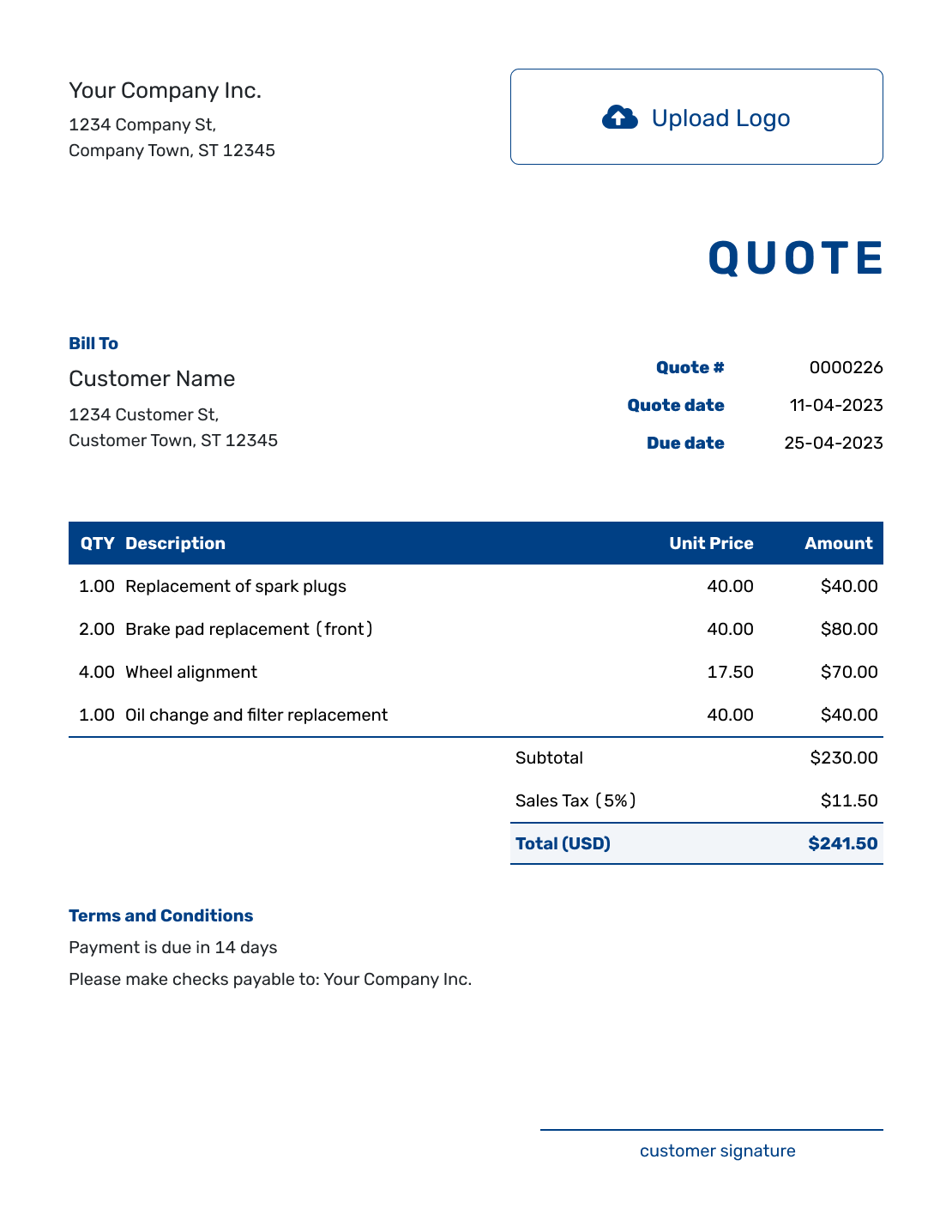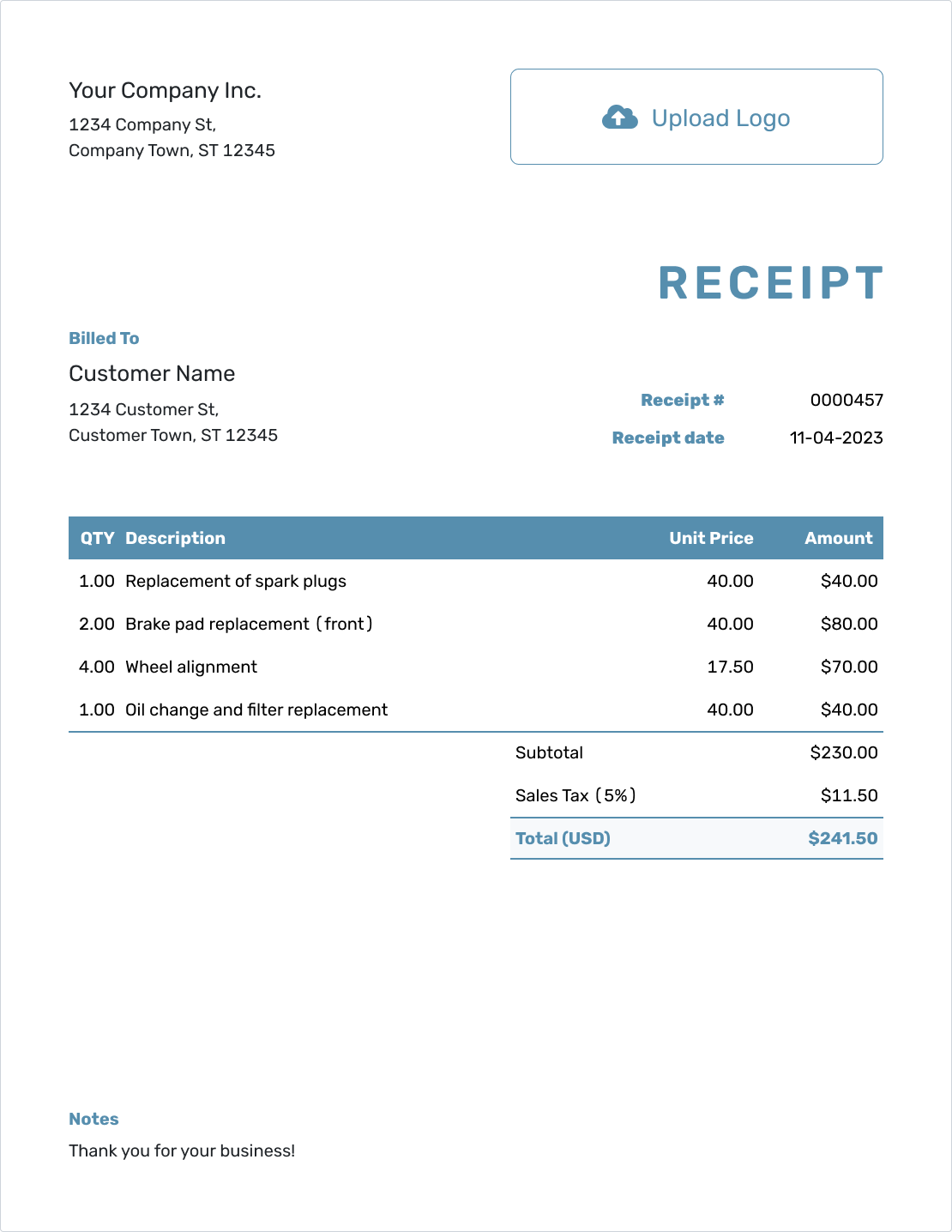Understanding
Quote vs. Estimate
Est. reading time: 5 min

When discussing pricing with clients, you’ve probably heard the terms quote and estimate. While they're often used interchangeably, they mean different things. Understanding these terms helps you set clear expectations with customers and avoid misunderstandings about costs.
What Is a Quote?
A quote is a formal document that provides an exact price for goods or services. Once a customer accepts a quote, it becomes legally binding, meaning you're committed to delivering the work for the agreed price.
Key Features of a Quote:
- Purpose: To provide a fixed price for a project or service.
- Details Included:
- Specific description of the work or items.
- Exact cost, including taxes and fees.
- Validity period (how long the price is guaranteed).
When to Use a Quote:
Quotes are used when the scope of the work is clear, and you can confidently determine the total cost upfront. For example:
- A contractor provides a quote for building a deck.
- A web designer offers a quote for a custom website project.
What Is an Estimate?
An estimate is an approximate calculation of the cost of a project or service. It's not legally binding and may change as the work progresses or if unforeseen expenses arise.
Key Features of an Estimate:
- Purpose: To provide a ballpark figure for a project.
- Details Included:
- Breakdown of potential costs.
- Clear indication that the price is approximate.
When to Use an Estimate:
Estimates are ideal when the scope of the work is uncertain or subject to change. For example:
- A plumber gives an estimate for repairing a leaky pipe.
- A landscaper provides an estimate for a garden redesign without finalized plans.
Key Differences Between Quotes and Estimates
| Aspect | Quote | Estimate |
|---|---|---|
| Purpose | Provides a fixed price. | Gives an approximate cost. |
| Binding | Legally binding once accepted. | Non-binding. |
| Scope | Used for well-defined projects. | Used when project details are uncertain. |
| Flexibility | Price is fixed and cannot change. | Price may vary based on actual work or costs. |
When to Use Each
Deciding whether to provide a quote or an estimate depends on the nature of the work:
- Use a Quote: When you can clearly define the scope, timeline, and costs upfront.
- Use an Estimate: When the project involves variables or unknown factors that could affect the final cost.
Clear communication is key. Be transparent with your customers about which pricing method you're using and why.
The Docelf Advantage
Docelf makes it simple to create professional quotes and estimates that impress your clients. With our software, you can:
- Customize Documents: Add your branding and tailor details to match your business needs.
- Stay Organized: Keep all your quotes and estimates in one place for easy access.
- Convert Estimates to Invoices: Seamlessly turn approved estimates into invoices when the work is done.
Ready to take the hassle out of quotes and estimates? Try Docelf for free today!




